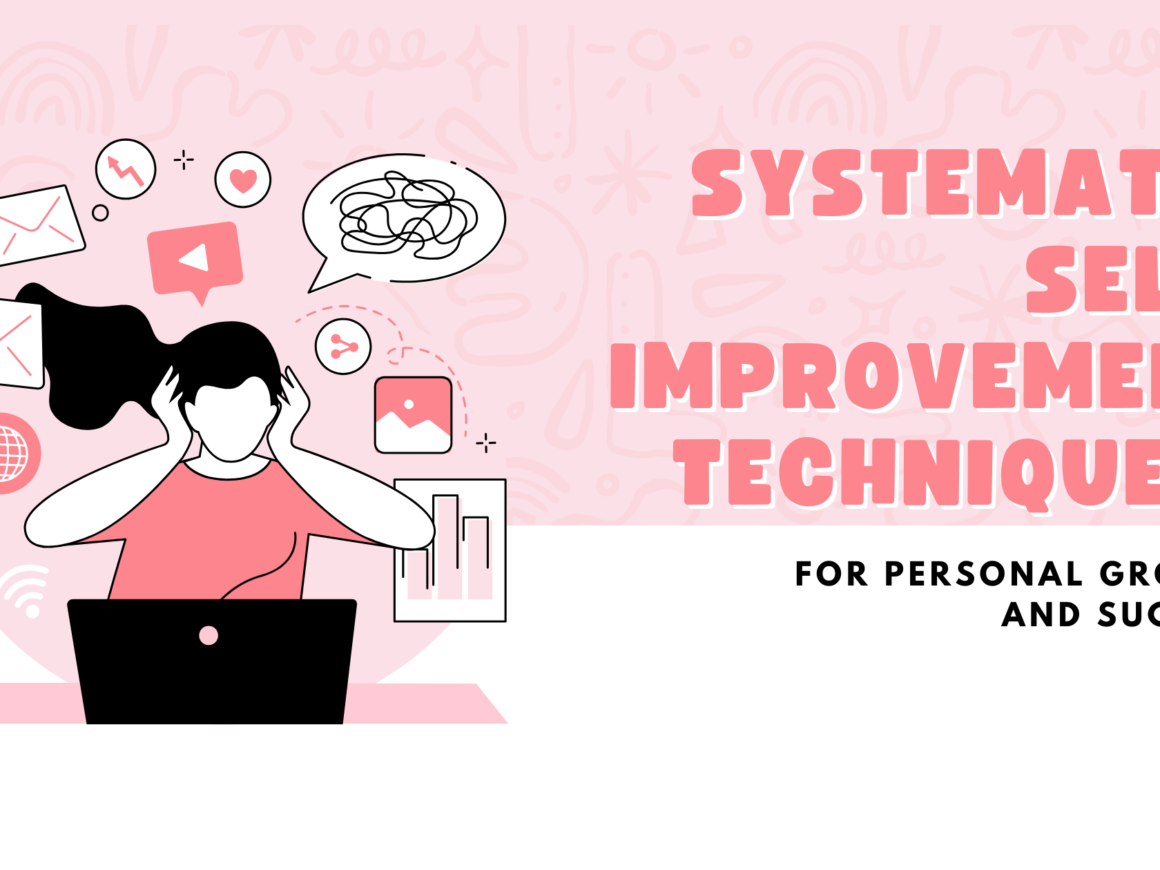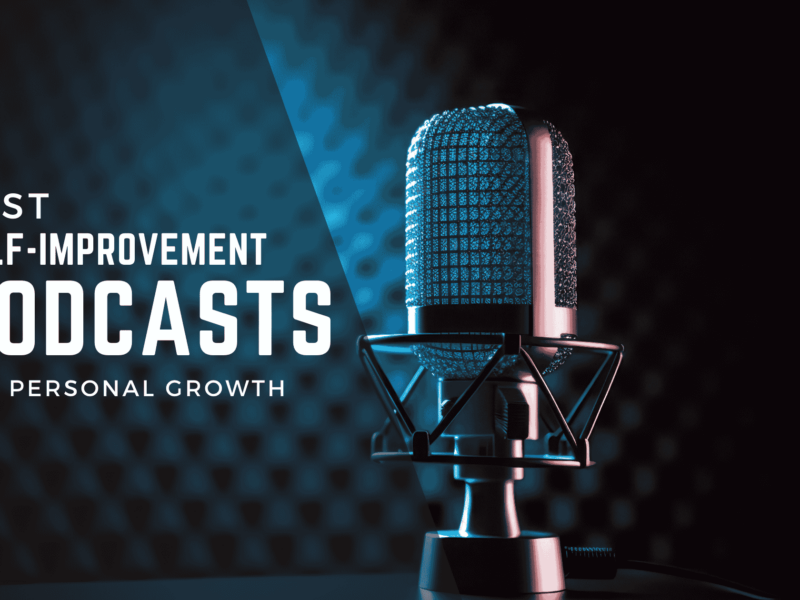It takes intentional work to better oneself throughout one’s life, and for many people, figuring out a clear, organized route might be daunting. It’s critical to use a methodical strategy that divides self-improvement into doable tasks in order to accomplish continual progress. In addition to assisting in the development of improved habits, systematic self-improvement techniques guarantee that your progress is steady and quantifiable.
This post will discuss 15 tried-and-true methodical self-improvement strategies that can help you succeed, grow personally, and find more fulfillment in life. With the help of these approaches, you may become the best version of yourself by improving your emotional intelligence and developing self-discipline.
Why Is It Important to Improve Oneself?
Enhancing your physical, mental, emotional, and social well-being is the goal of self-improvement. It assists you in coordinating your aims and values with your activities. Resilience, flexibility, and a sense of fulfillment are all enhanced by personal growth. The advantages of self-improvement are numerous and encompass all facets of life, including improved relationships, career success, and mental well-being.
Systematic self-improvement methods, according to National.edu, may significantly alter how you approach your personal and professional lives, resulting in long-term increases in productivity and satisfaction.
READ ALSO: Best Self-Improvement Podcasts for Personal Growth
15 Systematic Self-Improvement Techniques
- Make definite, attainable goals
Establishing goals is essential to human development. Divide your long-term objectives into smaller, more doable activities so you can monitor your progress and stay encouraged. When it comes to offering a path to achievement, SMART goals—Specific, Measurable, Achievable, Relevant, and Time-bound—work especially well.
over example, a SMART goal might be, “I want to run 5 kilometers three times a week for the next three months,” as opposed to, “I want to be more fit.”
- Monitor Your Development
It’s crucial to monitor your advancement to make sure you’re headed correctly. Make use of productivity tools to track your successes and failures, such as spreadsheets, applications, or notebooks. According to Affirmed Life, you may refine your approach to self-improvement by reflecting regularly.
- Establish Positive Habits
The foundation of methodical self-improvement is a set of good habits. You can improve gradually by developing habits, such as reading for a certain amount of time each day, exercising frequently, and eating healthily. Prioritize one habit at a time, like getting up earlier, and work your way up to adding others.
- Improve your emotional quotient (EQ)
Developing one’s emotional intelligence is essential to improving oneself. Improving your emotional intelligence quotient (EQ) entails developing self-awareness, effective emotion management, and empathy for others. Empathy and mindfulness training may greatly enhance interpersonal connections and mental health, claims Thrive Global.
- Adopt a Culture of Lifelong Learning
The foundation of personal development is learning. Make it your routine to learn new things, whether it’s by reading, going to seminars, or doing online courses. In a world that is always changing, systematic learning helps you grow professionally and personally while maintaining your competitive edge.
- Exercise Self-Control
The capacity to regulate your behavior and feelings to accomplish long-term objectives is known as self-discipline. This method necessitates that you follow through on a strategy, no matter how challenging. Build up the discipline in your life little by little by starting with something as simple as adhering to a morning routine.
- Managing Your Time
Managing your time well is key to striking a balance between work, personal objectives, and leisure. You may stay productive by organizing your daily work with the use of tools like time-blocking techniques and the Pomodoro Technique, which involves 25-minute focus periods. Systematic approaches to time management significantly increase productivity, claims Medium.
- Go Against Your Comfort Zone
You can only grow by pushing past your existing limitations. Take on new challenges that frighten or terrify you regularly to push yourself. Venturing outside your comfort zone, whether public speaking or launching a side venture, fosters resilience and self-assurance.
- Develop An Awareness of
Mindfulness is the practice of being totally present and involved in the present moment. It enhances emotional management and lowers stress. Frequent mindfulness training, such as meditation or deep breathing, can significantly improve emotional stability and mental clarity.
- Look for constructive criticism
Getting feedback is crucial for personal development. Constructive criticism, whether it comes from loved ones, coworkers, or mentors, may help you see your strengths and places for growth from a different angle. By taking constructive criticism to heart, you can make sure that your abilities and perspective are always being improved.
- Give Physical Health First Priority
Your productivity and mental clarity are directly impacted by your physical health. A healthy diet, regular exercise, and enough sleep are essential for sustaining the energy levels required for self-improvement. Include physical wellness practices in your plan for self-improvement.
- Show Appreciation
Daily thankfulness exercises can enhance your mental health and keep your attention on the good things in life. Writing in a journal or just thinking about your blessings may help you develop a positive outlook, which is crucial for long-term personal development.
- Develop Your Communication Abilities
One essential life skill is effective communication. Building stronger relationships in both your personal and professional life is possible when you have improved your ability to communicate effectively, listen intently, and express yourself. It also gives you more self-assurance in social settings.
- Prepare for Obstacles
Every path toward growth is fraught with obstacles. Prepare for setbacks and have contingency plans ready to recover swiftly. The secret to sustaining long-term growth is being ready for setbacks, whether it’s refocusing after a difficult week or modifying your goals after failing.
- Maintain a Work-Life Balance
To avoid burnout and make sure your personal development is sustainable, you must strike a balance between your personal and professional lives. Set limits and give mental and emotional rest periods top priority when engaging in activities.
Techniques for Personal Development for Long-Term Success
Your quest toward self-improvement may be sustained with the aid of personal growth tactics. The following are some tactics to use:
- Learn the Fundamentals
Prioritize learning fundamental self-improvement skills like goal-setting, introspection, and self-discipline before making significant changes. Gaining strength in these fundamental habits makes taking on bigger tasks easier.
- Stress the importance of self-care.
It should be your first priority to look for your bodily and emotional well-being. Make time for hobbies, exercise, and quality time with loved ones—activities that help you unwind and rejuvenate.
- Embrace a Growth Mentality
Having a growth mindset is thinking that skills can be acquired with commitment and hard work. It promotes fortitude in the face of difficulties and a willingness to grow from failures.
- Increase Your Knowledge
Never give up learning. Seek out fresh experiences and information constantly for your personal and professional lives. Your insatiable curiosity will lead you to fresh prospects for development.
- Take Responsibility
The secret to reaching your goals for self-improvement is personal accountability. To stay on track with your objectives, think about forming a partnership with a mentor or an accountability partner.
Ideas for Self-Improvement: Things to Focus on
Here are a few self-improvement concepts you may methodically work on if you’re not sure where to begin:
- Fitness and Health
Establish a regular workout program and concentrate on choosing better foods.
- Knowledge of Finances
Develop prudent saving, investing, and budgeting skills. Stress can be reduced and long-term security can be enhanced by financial knowledge.
- Originality
Take up a creative endeavor, such as painting, writing, or performing music. Engaging in creative endeavors can lower stress and improve mental health.
- Leadership Capabilities
Leadership is important in both your personal and professional lives. Learn how to make decisions and communicate clearly in order to inspire and encourage others.
In summary – Systematic Self-Improvement Techniques
An organized approach to development is provided by systematic self-improvement techniques, which guarantee that each step you take will bring you one step closer to your career and personal objectives. You may develop enduring habits that promote ongoing development by putting these 15 strategies into practice. These techniques, which range from developing emotional intelligence to time management exercises, offer a path to a happier and more prosperous existence.
Accept that you are always learning and growing as a person, and don’t forget to assess your progress on a frequent basis. These gradual, methodical adjustments will eventually result in big, beneficial improvements in every area of your life.
FAQ – Systematic Self-Improvement Techniques
- Systematic self-improvement: what is it?
A methodical, planned strategy to improving several facets of your life, such as your personal, emotional, physical, or professional growth, is known as systematic self-improvement. It entails establishing precise objectives, monitoring your development, and continuously improving your behavior to get the results you want.
- How can I begin my journey of methodical self-improvement?
Start by determining the aspects of your life that you would like to do better at. For every area, establish SMART goals (Specific, Measurable, Achievable, Relevant, and Time-bound) and develop a strategy to meet them. Work on daily habits to start small, and monitor your success on a regular basis.
- What kinds of strategies are there for improving oneself?
Developing emotional intelligence, creating positive habits, goal-setting, time management, and mindfulness are examples of common self-improvement strategies. Other instances include enhancing one’s ability to communicate, placing a high value on one’s physical well-being, and asking for helpful criticism.
- Why is it crucial to better oneself?
A more happy life, reaching objectives, and personal progress all depend on self-improvement. It strengthens your resilience, elevates your relationships, and boosts your physical and mental health in addition to increasing productivity.
- How long does it take for self-improvement methods to start showing results?
The duration required to observe outcomes varies based on the person and the particular method being used. While more ambitious objectives can take months or even years to accomplish, other habits, like practicing mindfulness, might start to pay off in a matter of weeks. Maintaining consistency is essential.
- What are some barriers to bettering oneself?
Procrastination, a fixed perspective, fear of failure, and a lack of drive are common barriers. To overcome obstacles, it’s critical to maintain commitment, set reasonable goals, and develop appropriate setback management techniques.
- Can professional progress be aided by self-improvement?
Yes, professional progress may be considerably aided by methodical self-improvement strategies. You may advance your career and create new chances by developing abilities like time management, leadership, communication, and emotional intelligence.
- How can I maintain my motivation while working on myself?
Track your progress, recognize little victories, and revisit your goals frequently to keep yourself motivated. Maintaining motivation may also be facilitated by joining a self-improvement organization or surrounding oneself with encouraging people.
- How can I assess my own progress?
You may evaluate your own development by comparing it to your SMART goals. Frequent writing, self-evaluation, and receiving input from others may all be useful tools for tracking your progress.
- What part does thinking play in developing oneself?
Having a growth mentality is essential for improving oneself. It motivates you to see difficulties as chances to grow rather than as roadblocks. You’re more likely to persevere through failures and never give up on your personal progress if you have a growth mentality.


